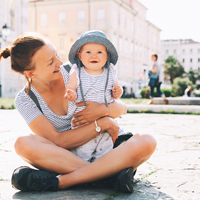Pai, Thailand
Last updated on Sep 05, 2023
Summary: Expats, digital nomads and retirees talk about what it is really like living in Pai, Thailand. They offer advice about meeting people, cost of living, finding a home and more.
What do I need to know about living in Pai?
When we asked people what advice they would give someone preparing to move to Pai, they said:
"Expats considering retirement in Pai, should be aware of several key factors. Firstly, they should understand that the cost of living is relatively low compared to Western countries, but it's still important to have a solid financial plan. They should also be aware that the healthcare system in Thailand is generally good, but private health insurance is recommended. Expats should know that the climate in Pai is tropical with a rainy season from May to October and a dry season from November to April. They should also be prepared for the cultural differences, including the importance of respect for the Thai Royal Family and Buddhism, which is practiced by the majority of the population. Learning the Thai language can be challenging but is highly beneficial for daily life. Expats should also be aware that Thai cuisine is a fundamental part of the culture, with street food being a popular and affordable option. It's important to understand the visa requirements for retiring in Thailand. Generally, a retirement visa is available for those over 50 who meet certain financial requirements. This visa needs to be renewed annually. Expats should also be aware that Pai is a small town with a slower pace of life, which can be a significant change from living in a bustling city. The town is surrounded by nature, including hot springs, waterfalls, and mountains, making it ideal for those who enjoy outdoor activities. Lastly, expats should know that while Pai is generally safe, it's still important to take standard precautions, such as securing personal belongings and avoiding isolated areas at night," remarked one expat living in Thailand.
 Allianz Care
Allianz CareGet Quote
Allianz Care's plans ensure that you have access to quality healthcare whenever you need it. Our flexible solutions allow you to tailor your cover to meet your needs and budget. You can submit your claims digitally and our helpline is available 24/7 to help you anytime.
 Allianz Care
Allianz CareAllianz Care's plans ensure that you have access to quality healthcare whenever you need it. Our flexible solutions allow you to tailor your cover to meet your needs and budget. You can submit your claims digitally and our helpline is available 24/7 to help you anytime.
Get Quote
What do I need to know before moving to Pai?
Please login to continue reading this article.
Not a member? Join Today (it's free).
About the Author
 Betsy Burlingame is the Founder and President of Expat Exchange and is one of the Founders of Digital Nomad Exchange. She launched Expat Exchange in 1997 as her Master's thesis project at NYU. Prior to Expat Exchange, Betsy worked at AT&T in International
and Mass Market Marketing. She graduated from Ohio Wesleyan University
with a BA in International Business and German.
Betsy Burlingame is the Founder and President of Expat Exchange and is one of the Founders of Digital Nomad Exchange. She launched Expat Exchange in 1997 as her Master's thesis project at NYU. Prior to Expat Exchange, Betsy worked at AT&T in International
and Mass Market Marketing. She graduated from Ohio Wesleyan University
with a BA in International Business and German.
Some of Betsy's articles include 12 Best Places to Live in Portugal, 7 Best Places to Live in Panama and 12 Things to Know Before Moving to the Dominican Republic. Betsy loves to travel and spend time with her family. Connect with Betsy on LinkedIn.
Other Questions:
- What do I need to know before moving to Pai?
- What is a typical expat home or apartment like in Pai?
- What is the average cost of housing in Pai?
- How do I meet people in Pai?
- What do I need to know before retiring in Pai?
- What should I pack when moving to Pai?
- Where should I setup a bank account in Pai?
- Will I be able to find a job in Pai?
- What is life like as an expat in your area?
- What do people like (and dislike) about Pai?
- What type of social life can someone expect in Pai?
- What is the social scene like in Pai?
- What advice to expats in Pai have about housing?
- What are medical services in Pai like?
- Are healthcare and health insurance expensive in Pai?
- Is the cost of living in Pai high?
- What are the visa & residency requirements in Pai?
- Why do people move to Pai?

 Pai, Thailand
Pai, Thailand
